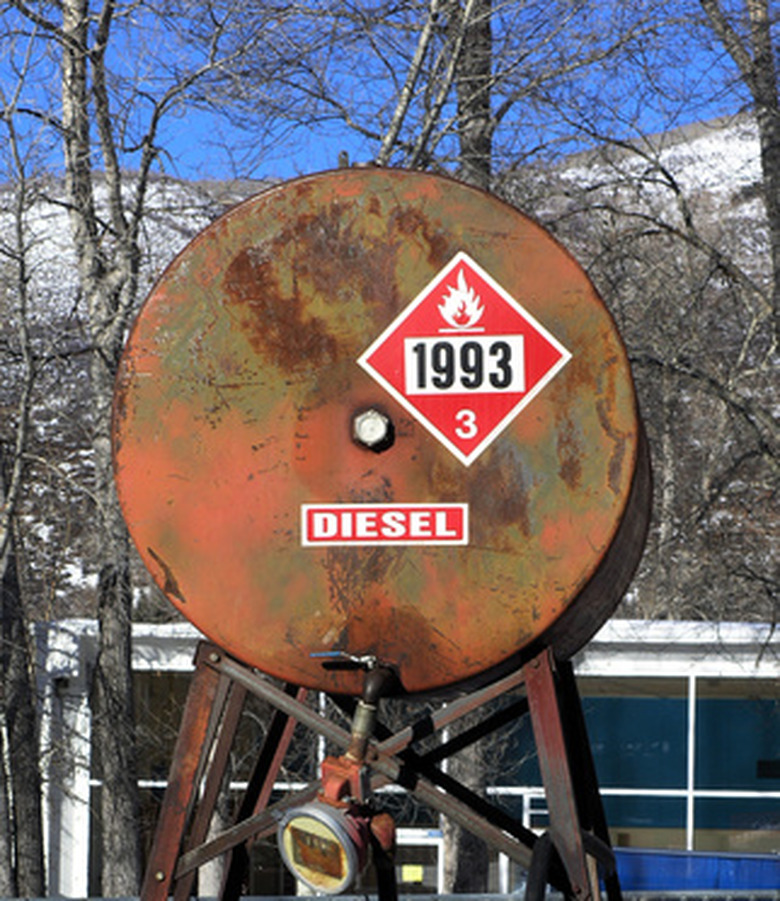Can Diesel Fuel Tanks Be Stored Inside Buildings?
Diesel fuel tanks can be stored inside buildings under the right conditions, and doing so can slow fuel degradation. Federal regulations address concerns such as maximum quantities and fuel transfer methods in workplaces.
Hazards
Hazards
According to the Occupational Safety & Health Administration (OSHA), diesel fuel has a lower flashpoint than gasoline, meaning it does not ignite as readily. However, diesel can still be a fire hazard if stored improperly.
Conditions
Conditions
OSHA regulations permit a maximum of 60 gallons of diesel fuel to be stored inside a single storage room. Additionally, transfer of the fuel must occur in a ventilated environment by approved methods, such as from the top of the indoor tank, through closed pipes or via a self-closing valve.
Fuel Degradation
Fuel Degradation
Storing diesel tanks indoors helps protect the fuel from environmental degradation due to conditions like high temperatures and moisture. Diesel absorbs moisture from the air, and a tank that is too large will result in condensate mixing with the fuel. Regular removal of dirt and water will extend diesel life, according to BP (British Petroleum).
Cite This Article
MLA
Lee, Lexa W.. "Can Diesel Fuel Tanks Be Stored Inside Buildings?" sciencing.com, https://www.sciencing.com/can-tanks-stored-inside-buildings-7853526/. 24 April 2017.
APA
Lee, Lexa W.. (2017, April 24). Can Diesel Fuel Tanks Be Stored Inside Buildings?. sciencing.com. Retrieved from https://www.sciencing.com/can-tanks-stored-inside-buildings-7853526/
Chicago
Lee, Lexa W.. Can Diesel Fuel Tanks Be Stored Inside Buildings? last modified March 24, 2022. https://www.sciencing.com/can-tanks-stored-inside-buildings-7853526/
